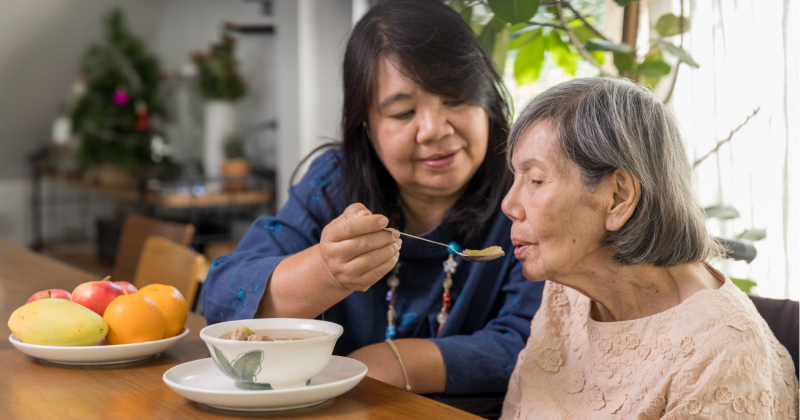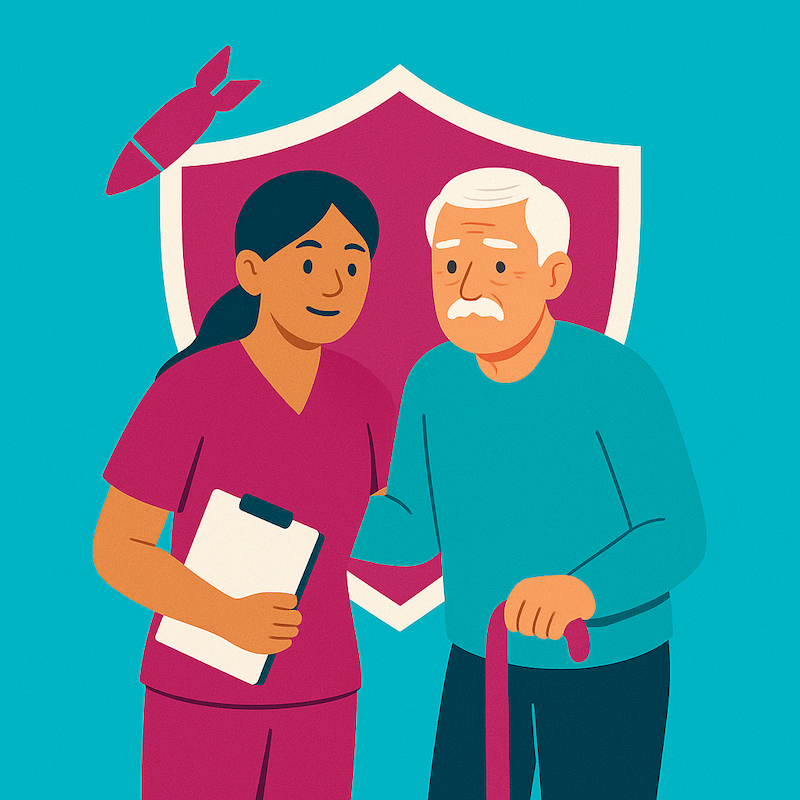How to Assist with Meal Planning and Nutrition for Elderly Patients
iSavta | 28.01.2024

As individuals age, their nutritional needs evolve, making meal planning and proper nutrition crucial for maintaining their health and well-being. Elderly patients often face challenges such as decreased appetite, dietary restrictions, and difficulties with food preparation. Assisting them with meal planning and nutrition can greatly contribute to their overall health. In this article, we will explore practical tips and strategies to support elderly patients in achieving a well-balanced and nourishing diet.
Understand their dietary requirements:
The first step in assisting elderly patients with meal planning is to understand their specific dietary requirements. Each individual has unique nutritional needs based on factors such as age, medical conditions, and medications. Consulting with a healthcare professional or a registered dietitian can provide valuable insight into any dietary restrictions or modifications necessary to meet their needs.
Create a balanced meal plan:
Developing a balanced meal plan is essential to ensure that elderly patients receive the necessary nutrients. Include a variety of food groups, such as fruits, vegetables, whole grains, lean proteins, and dairy products. Aim for colorful meals that are rich in vitamins, minerals, and fiber. Encourage the consumption of foods with high nutritional density while limiting empty calories from sugary snacks and processed foods.
Adapt to their preferences and limitations:
Consider the personal preferences and limitations of elderly patients when creating meal plans. Encourage them to participate in the decision-making process and respect their choices. Some individuals may have difficulty chewing or swallowing, so it may be necessary to modify the texture of certain foods or provide alternatives that are easier to eat, such as pureed or soft foods.
Small, frequent meals:
Elderly patients often experience a decrease in appetite or may struggle with large portions. Opting for small, frequent meals throughout the day can help ensure they receive adequate nutrition without overwhelming their digestive system. Encourage healthy snacking between meals, incorporating nutrient-dense options like nuts, yogurt, or fresh fruits.
Simplify meal preparation:
Many elderly patients may face challenges with meal preparation due to physical limitations or cognitive decline. Simplify their meal preparation process by organizing their kitchen with easy-to-reach utensils and tools. Consider preparing meals in advance and portioning them into individual servings for easy reheating. Alternatively, explore meal delivery services that offer nutritious, pre-prepared meals specifically designed for elderly individuals.
Engage in social eating:
Eating alone can lead to feelings of isolation and decreased appetite for elderly patients. Encourage social eating by organizing communal meals or inviting friends and family members to share a meal with them. Eating together not only enhances the dining experience but also fosters social connections, which contribute to overall well-being.
Monitor hydration:
Proper hydration is often overlooked but is equally important for maintaining the health of elderly patients. Encourage them to drink an adequate amount of fluids throughout the day, including water, herbal teas, and low-sugar juices. Monitor their fluid intake and be aware of any signs of dehydration, such as dry mouth or dark urine.
Involve family and caregivers:
Collaborating with family members and caregivers is crucial for effective meal planning and nutrition support for elderly patients. Keep open lines of communication to ensure that everyone is aware of any dietary restrictions, preferences, or changes in appetite. Provide resources and educational materials to help them understand the importance of proper nutrition and how to assist in meal planning.
Conclusion:
Assisting elderly patients with meal planning and nutrition requires a comprehensive approach that addresses their unique dietary needs and challenges. By understanding their requirements, creating balanced meal plans, adapting to their preferences, and simplifying meal preparation, we can contribute to their overall health and well-being. Additionally, fostering social connections and monitoring hydration are equally vital. By involving family members and caregivers in the process, we can ensure continuity of care and support elderly patients in maintaining a nourishing and satisfying diet.











